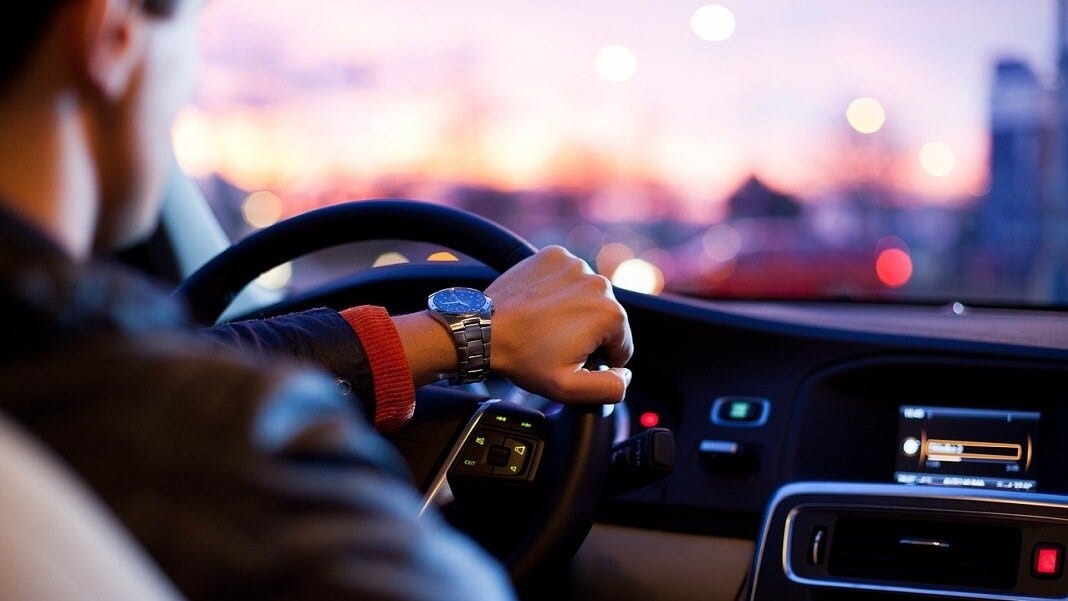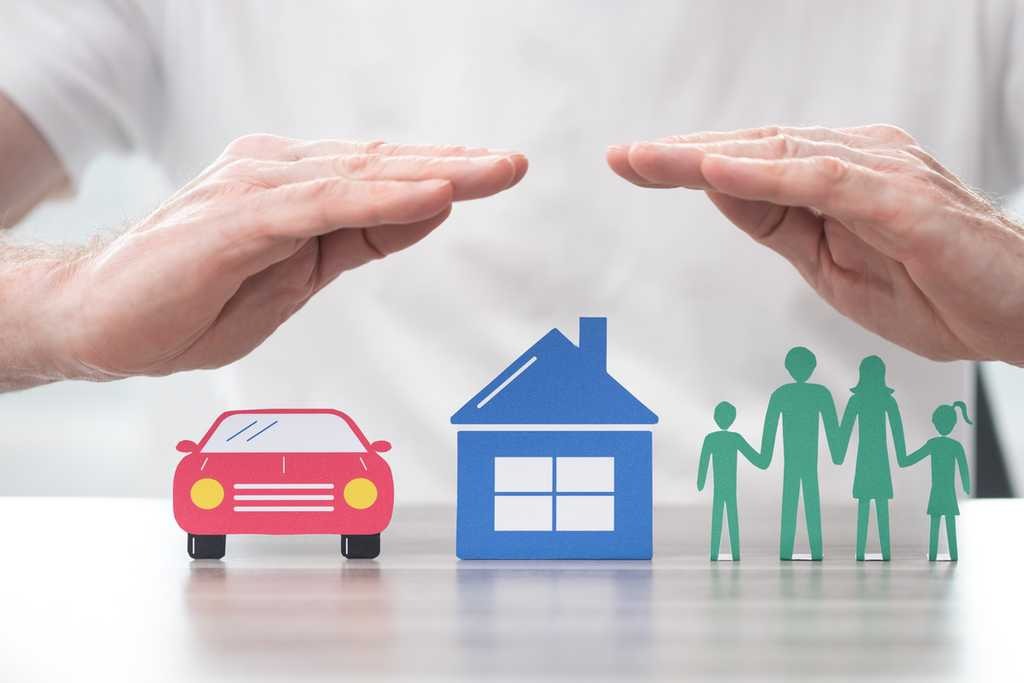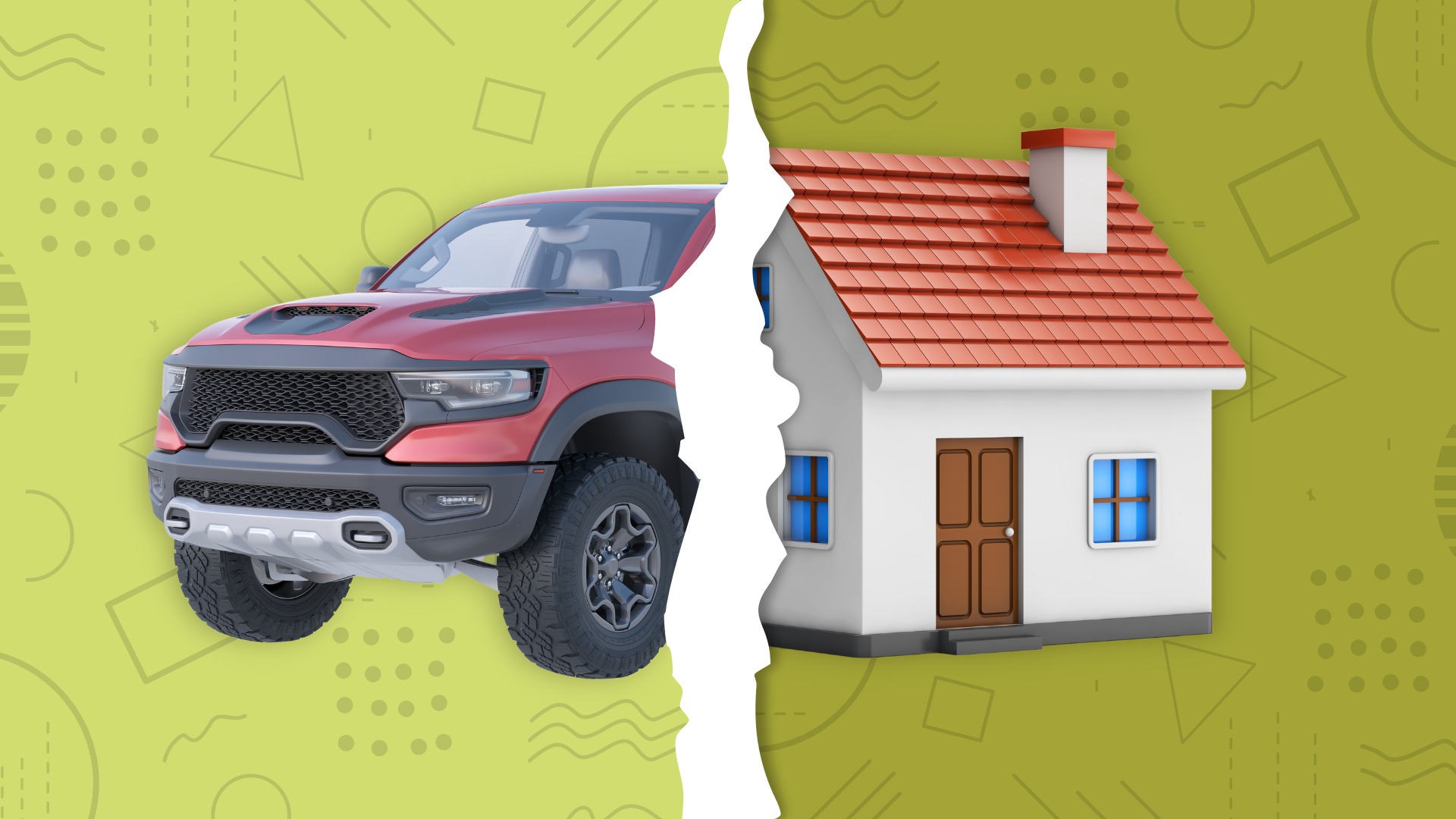After delving into the exorbitant prices of new luxury cars, I realized that a greater percentage of the population buys such vehicles than I initially thought. This trend poses a significant problem for those seeking financial freedom, which is why I put together the Home-Car Relationship guide.
I see people everywhere with expensive new cars parked in front of modest houses. With high rents and revolving credit Card debt, many Americans can get trapped in the frantic race indefinitely.
 As someone who helped launch the modern fire movement Moderna 2009, it hurts me to witness such financial irresponsibility when the solution is so easy to fix. With my new Home / Car Ratio Guide, you can check if you are on your way to financial independence or if you need to make the appropriate changes.
Since everyone needs both housing and Transportation, this could be one of the most beneficial Personal Finance articles you'll ever read. Let's dig in!
The Home-Car Relationship For Financial Freedom
We are all aware that a Car is a liability, with a 99.9% chance of losing value over time. The only exception is collector cars, which are valued for decades if left intact.
In contrast, a home is a business with an appreciation probability of about 70% over a 12-month period. This probability increases if you own the property.
Reference House / Car Ratio
$ 420,000 (average house price) / $ 48,000 (average car price) = $ 8.75. In other words, the typical American has a Home / Car ratio of about 8.75. the higher your ratio, the better, because that means your car's value is a lower percentage of your home's value. The other assumption is that the average person spends too much on A Car.
As someone who helped launch the modern fire movement Moderna 2009, it hurts me to witness such financial irresponsibility when the solution is so easy to fix. With my new Home / Car Ratio Guide, you can check if you are on your way to financial independence or if you need to make the appropriate changes.
Since everyone needs both housing and Transportation, this could be one of the most beneficial Personal Finance articles you'll ever read. Let's dig in!
The Home-Car Relationship For Financial Freedom
We are all aware that a Car is a liability, with a 99.9% chance of losing value over time. The only exception is collector cars, which are valued for decades if left intact.
In contrast, a home is a business with an appreciation probability of about 70% over a 12-month period. This probability increases if you own the property.
Reference House / Car Ratio
$ 420,000 (average house price) / $ 48,000 (average car price) = $ 8.75. In other words, the typical American has a Home / Car ratio of about 8.75. the higher your ratio, the better, because that means your car's value is a lower percentage of your home's value. The other assumption is that the average person spends too much on A Car.
 Strong Edmunds.com if the average price of a used vehicle in 2024 is $ 27,297. Therefore, we can make another simple calculation by dividing 420 000 / / 27 297 = = 15,4.
In other words, the typical American household has a Home-to-Car ratio of 8.75 to 15.4. your goal is to beat this ratio if you want to achieve financial freedom before the masses.
What if you don't own a Car but own a house?
If you own a house but don't own A Car, you win. They are resourceful because they use public transportation, use Ridesharing services, use ridesharing platforms, and/or have the ability to work from home. You may also be lucky enough to live in a city with fantastic public transport like new city or all major cities in Europe and Asia.
Since a Car is a liability that increases over time with maintenance issues, wear and tear, parking tickets, and potential accidents, not needing a Car to get around is a big financial benefit.
Strong Edmunds.com if the average price of a used vehicle in 2024 is $ 27,297. Therefore, we can make another simple calculation by dividing 420 000 / / 27 297 = = 15,4.
In other words, the typical American household has a Home-to-Car ratio of 8.75 to 15.4. your goal is to beat this ratio if you want to achieve financial freedom before the masses.
What if you don't own a Car but own a house?
If you own a house but don't own A Car, you win. They are resourceful because they use public transportation, use Ridesharing services, use ridesharing platforms, and/or have the ability to work from home. You may also be lucky enough to live in a city with fantastic public transport like new city or all major cities in Europe and Asia.
Since a Car is a liability that increases over time with maintenance issues, wear and tear, parking tickets, and potential accidents, not needing a Car to get around is a big financial benefit.
 As long as you save and invest in stock exchanges, public real estate funds, private real estate funds, or other risky assets, you will likely accumulate much more wealth over time than the average person.
If you don't own a Car but own a home, you might want to consider a Home / Car ratio of around 30. You do it twice as well as the Average American.
As long as you save and invest in stock exchanges, public real estate funds, private real estate funds, or other risky assets, you will likely accumulate much more wealth over time than the average person.
If you don't own a Car but own a home, you might want to consider a Home / Car ratio of around 30. You do it twice as well as the Average American.
 As someone who helped launch the modern fire movement Moderna 2009, it hurts me to witness such financial irresponsibility when the solution is so easy to fix. With my new Home / Car Ratio Guide, you can check if you are on your way to financial independence or if you need to make the appropriate changes.
Since everyone needs both housing and Transportation, this could be one of the most beneficial Personal Finance articles you'll ever read. Let's dig in!
The Home-Car Relationship For Financial Freedom
We are all aware that a Car is a liability, with a 99.9% chance of losing value over time. The only exception is collector cars, which are valued for decades if left intact.
In contrast, a home is a business with an appreciation probability of about 70% over a 12-month period. This probability increases if you own the property.
Reference House / Car Ratio
$ 420,000 (average house price) / $ 48,000 (average car price) = $ 8.75. In other words, the typical American has a Home / Car ratio of about 8.75. the higher your ratio, the better, because that means your car's value is a lower percentage of your home's value. The other assumption is that the average person spends too much on A Car.
As someone who helped launch the modern fire movement Moderna 2009, it hurts me to witness such financial irresponsibility when the solution is so easy to fix. With my new Home / Car Ratio Guide, you can check if you are on your way to financial independence or if you need to make the appropriate changes.
Since everyone needs both housing and Transportation, this could be one of the most beneficial Personal Finance articles you'll ever read. Let's dig in!
The Home-Car Relationship For Financial Freedom
We are all aware that a Car is a liability, with a 99.9% chance of losing value over time. The only exception is collector cars, which are valued for decades if left intact.
In contrast, a home is a business with an appreciation probability of about 70% over a 12-month period. This probability increases if you own the property.
Reference House / Car Ratio
$ 420,000 (average house price) / $ 48,000 (average car price) = $ 8.75. In other words, the typical American has a Home / Car ratio of about 8.75. the higher your ratio, the better, because that means your car's value is a lower percentage of your home's value. The other assumption is that the average person spends too much on A Car.
 Strong Edmunds.com if the average price of a used vehicle in 2024 is $ 27,297. Therefore, we can make another simple calculation by dividing 420 000 / / 27 297 = = 15,4.
In other words, the typical American household has a Home-to-Car ratio of 8.75 to 15.4. your goal is to beat this ratio if you want to achieve financial freedom before the masses.
What if you don't own a Car but own a house?
If you own a house but don't own A Car, you win. They are resourceful because they use public transportation, use Ridesharing services, use ridesharing platforms, and/or have the ability to work from home. You may also be lucky enough to live in a city with fantastic public transport like new city or all major cities in Europe and Asia.
Since a Car is a liability that increases over time with maintenance issues, wear and tear, parking tickets, and potential accidents, not needing a Car to get around is a big financial benefit.
Strong Edmunds.com if the average price of a used vehicle in 2024 is $ 27,297. Therefore, we can make another simple calculation by dividing 420 000 / / 27 297 = = 15,4.
In other words, the typical American household has a Home-to-Car ratio of 8.75 to 15.4. your goal is to beat this ratio if you want to achieve financial freedom before the masses.
What if you don't own a Car but own a house?
If you own a house but don't own A Car, you win. They are resourceful because they use public transportation, use Ridesharing services, use ridesharing platforms, and/or have the ability to work from home. You may also be lucky enough to live in a city with fantastic public transport like new city or all major cities in Europe and Asia.
Since a Car is a liability that increases over time with maintenance issues, wear and tear, parking tickets, and potential accidents, not needing a Car to get around is a big financial benefit.
 As long as you save and invest in stock exchanges, public real estate funds, private real estate funds, or other risky assets, you will likely accumulate much more wealth over time than the average person.
If you don't own a Car but own a home, you might want to consider a Home / Car ratio of around 30. You do it twice as well as the Average American.
As long as you save and invest in stock exchanges, public real estate funds, private real estate funds, or other risky assets, you will likely accumulate much more wealth over time than the average person.
If you don't own a Car but own a home, you might want to consider a Home / Car ratio of around 30. You do it twice as well as the Average American. 



